Children in Charge
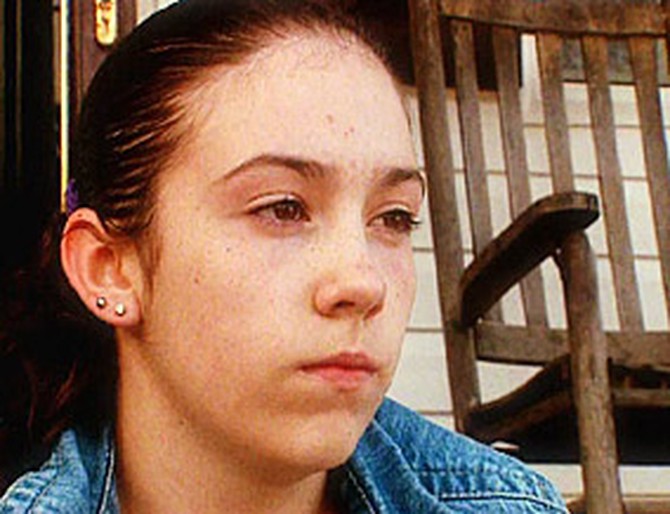
While other kids are playing Little League and having sleepovers, more than a million children are quietly managing their entire families. According to the National Alliance for Caregiving, 1.4 million children are becoming the head of their families because of sick or deceased parents.
"They are so incredibly mature and they bear such heavy responsibilities unlike any of the kids their age," Oprah Show correspondent Lisa Ling says. "And these kids, they're forced to become little adults."
Lisa flew to West Virginia to meet 13-year-old Megan. Her childhood came to an abrupt halt last year after a tragic series of events.
Megan's mother gave birth to the family's fifth child two and a half months early. While the baby was hospitalized and on life support, Megan's mom was diagnosed with cervical cancer. Shortly after, Megan's coal miner father lost his job and health insurance. "I realized my mom and dad needed more help," Megan says.
Megan instantly became head of the household, caring for her four siblings, sick mother and bedridden grandmother. "She's 13," says Tammy, Megan's mom. "She shouldn't have to worry about things like this."
"They are so incredibly mature and they bear such heavy responsibilities unlike any of the kids their age," Oprah Show correspondent Lisa Ling says. "And these kids, they're forced to become little adults."
Lisa flew to West Virginia to meet 13-year-old Megan. Her childhood came to an abrupt halt last year after a tragic series of events.
Megan's mother gave birth to the family's fifth child two and a half months early. While the baby was hospitalized and on life support, Megan's mom was diagnosed with cervical cancer. Shortly after, Megan's coal miner father lost his job and health insurance. "I realized my mom and dad needed more help," Megan says.
Megan instantly became head of the household, caring for her four siblings, sick mother and bedridden grandmother. "She's 13," says Tammy, Megan's mom. "She shouldn't have to worry about things like this."
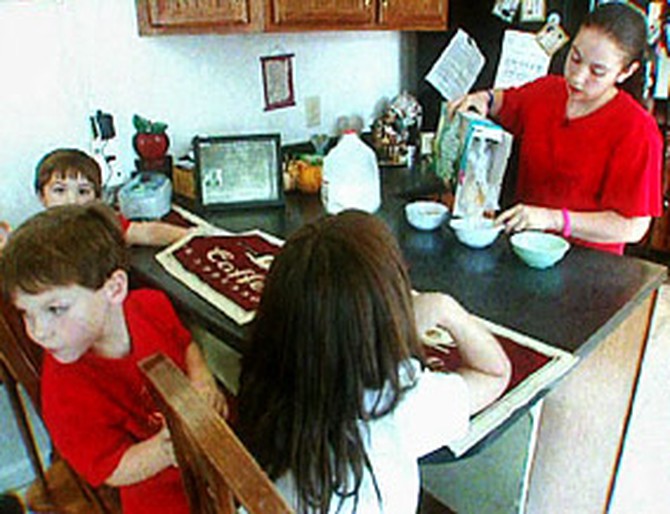
Megan wakes up every day at 6 a.m. to get her four siblings ready for the day. It's not easy dressing everyone and changing diapers—not to mention getting breakfast on the table. "Sometimes I feel overwhelmed. I get worried sometimes I won't get everything done," Megan says.
Megan also has to make sure her mom has her medication and her grandmother has what she needs. "By the time I leave for school, I feel tired," she says.
Megan gets home from school at 4 p.m., and her responsibilities kick in right away. She cares for her brothers and sisters, tends to household chores, and often doesn't get to cook dinner until after 9 p.m. "She's got as much pressure on her as an adult," Megan's dad Kevin says.
Megan says the demands on her life have cost her friends. "They don't understand what I'm going through," Megan says. "They just pull away. They don't sit with me at lunch. They don't even talk to me in the halls anymore."
Despite her busy life, Megan remains an honor student who tutors other kids after school and is working toward a black belt in karate. Still, her responsibilities take a toll. "With everything that's happening right now, I feel like happiness is not like a big part in my life," she says.
Megan also has to make sure her mom has her medication and her grandmother has what she needs. "By the time I leave for school, I feel tired," she says.
Megan gets home from school at 4 p.m., and her responsibilities kick in right away. She cares for her brothers and sisters, tends to household chores, and often doesn't get to cook dinner until after 9 p.m. "She's got as much pressure on her as an adult," Megan's dad Kevin says.
Megan says the demands on her life have cost her friends. "They don't understand what I'm going through," Megan says. "They just pull away. They don't sit with me at lunch. They don't even talk to me in the halls anymore."
Despite her busy life, Megan remains an honor student who tutors other kids after school and is working toward a black belt in karate. Still, her responsibilities take a toll. "With everything that's happening right now, I feel like happiness is not like a big part in my life," she says.
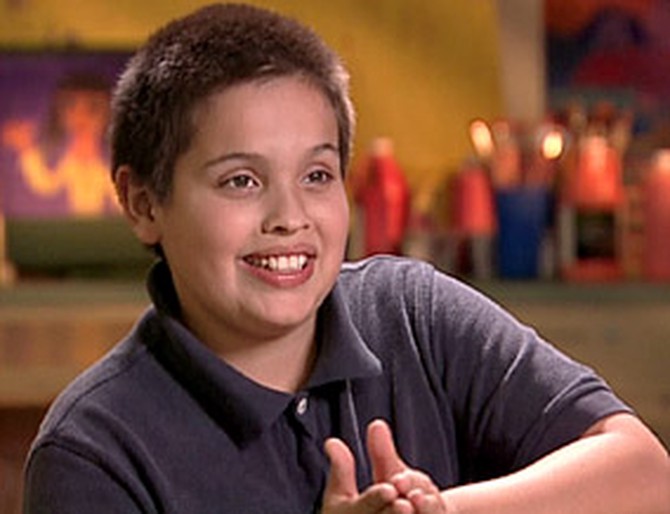
Third grader Orlando does more before school starts than most children do all day. Like most kids, the 10-year-old has trouble waking up in the morning. Unlike most kids, Orlando then gets dressed, makes up the couch where he sleeps, and makes breakfast for his mom, Awilda.
Awilda is deaf and suffers from multiple sclerosis. Confined to a wheelchair, she relies on Orlando for help. "I like my mom happy when I cook for her," he says.
Once he knows his mom has what she needs, Orlando kisses her goodbye and heads off to his elementary school.
Awilda is deaf and suffers from multiple sclerosis. Confined to a wheelchair, she relies on Orlando for help. "I like my mom happy when I cook for her," he says.
Once he knows his mom has what she needs, Orlando kisses her goodbye and heads off to his elementary school.
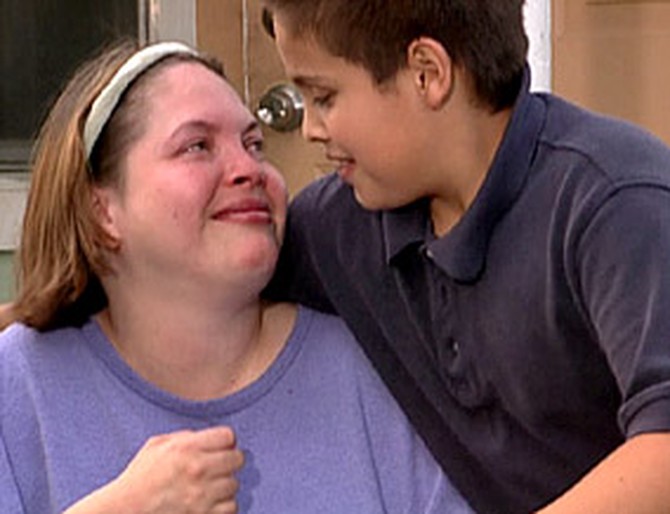
With his mom always on his mind, Orlando sometimes finds it difficult to concentrate on school. "When I'm in class [and] I hear ambulance[s] and stuff, I'm thinking the ambulance[s] are for my mom. And I just get worried," Orlando says.
His worries have become a distraction at school. "My heart goes out to him because of all the responsibility he has at home," Principal Denise O'Connor says.
After school, Orlando goes straight home to help his mother. Orlando's mother says she sometimes feels guilty about the amount of responsibility on her son. "Often I feel depressed and I get angry at myself because I don't want to hurt him," Awilda says. "But I need his help."
Still, Orlando wouldn't change a thing. "She's really a great mom. She's funny, cute, smart and she likes to do stuff for me and I like to do stuff for her," he says.
His worries have become a distraction at school. "My heart goes out to him because of all the responsibility he has at home," Principal Denise O'Connor says.
After school, Orlando goes straight home to help his mother. Orlando's mother says she sometimes feels guilty about the amount of responsibility on her son. "Often I feel depressed and I get angry at myself because I don't want to hurt him," Awilda says. "But I need his help."
Still, Orlando wouldn't change a thing. "She's really a great mom. She's funny, cute, smart and she likes to do stuff for me and I like to do stuff for her," he says.
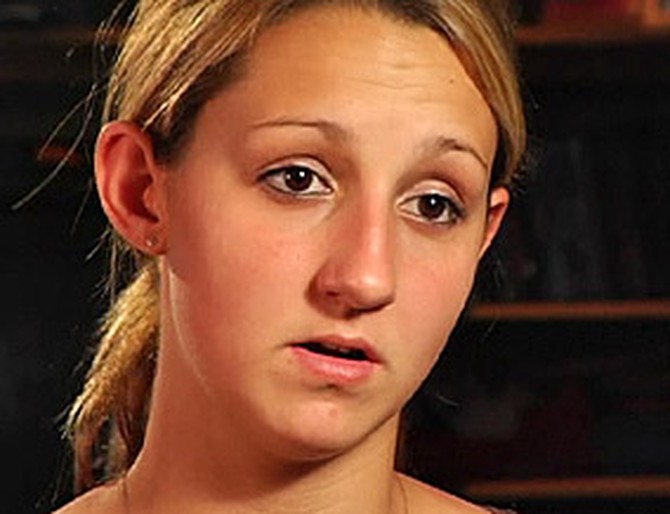
From the day Brianna was born, her mother, Tracy, was addicted to drugs. She grew up wondering why her mother wasn't always there for her, why she wouldn't leave the bedroom for days at a time, and why there were always so many people at the house.
Tracy says she allowed drug dealers to sell out of her home. "I just let the riff-raff come on in and instead of getting cash for room and board, I would get dope," Tracy says.
Eventually, Brianna came to a serious realization. "When I was 8, I realized that my mom wasn't out here to take care of me [or] my brother and sister, so I took care of them," she says. "I did everything a parent should have done."
For five years, Brianna led a secret life. "I was afraid to tell people at my school, teachers, friends' parents, that I had to take on big responsibilities because I was scared that I was going to be put in foster care," she says.
When she was 13, Brianna's fears came true. Shortly after her mother gave birth to a second set of twins, hospital nurses called authorities. Child Protective Services took Brianna and her siblings. "It was like pulling little puppies away from a big mom puppy," Brianna says. "I wasn't able to hug my mom. I wasn't able to say goodbye to her."
Tracy says she allowed drug dealers to sell out of her home. "I just let the riff-raff come on in and instead of getting cash for room and board, I would get dope," Tracy says.
Eventually, Brianna came to a serious realization. "When I was 8, I realized that my mom wasn't out here to take care of me [or] my brother and sister, so I took care of them," she says. "I did everything a parent should have done."
For five years, Brianna led a secret life. "I was afraid to tell people at my school, teachers, friends' parents, that I had to take on big responsibilities because I was scared that I was going to be put in foster care," she says.
When she was 13, Brianna's fears came true. Shortly after her mother gave birth to a second set of twins, hospital nurses called authorities. Child Protective Services took Brianna and her siblings. "It was like pulling little puppies away from a big mom puppy," Brianna says. "I wasn't able to hug my mom. I wasn't able to say goodbye to her."
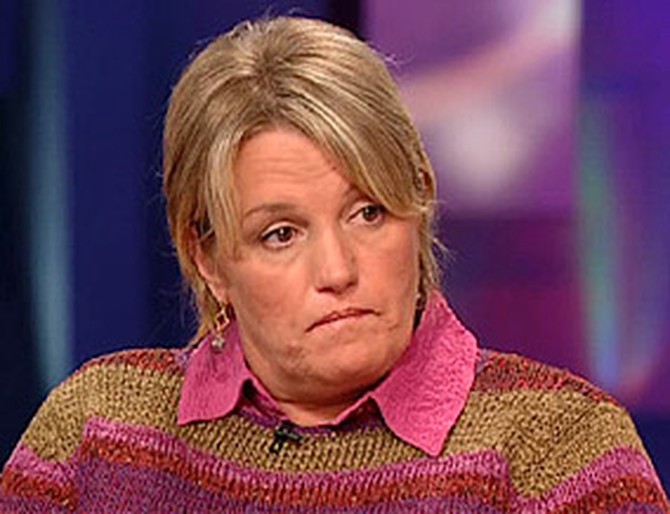
Brianna and her siblings remained in the custody of Child Protective Services for 15 months. During that time, Brianna was bounced between three different foster homes. "I was separated from all my brothers and sisters. It was just a horrible day, [Child Protective Services] knocking on the door and taking me away," Brianna says.
Tracy says the day her children were taken was the worst day of her life. "Looking at Brianna's face, waving [goodbye], that's the worst thing a mom can go through," Tracy says.
Tracy says she was addicted to drugs for 17 years, mostly cocaine and crystal meth. She says she has been clean for three years. "I was very, very sick. I didn't even realize what I was doing," Tracy says. "When you're caught up in that addiction, you don't even realize. You don't even think about the consequences that come along with it."
So now that she's sober, what does Tracy think of her past behavior? "I can't believe I put a child in that environment. I really can't," Tracy says. "I'm very sorry. I take responsibility for all my wrongs...All the wrong that I created for my family, for myself, even when I wasn't aware that that's what I was doing."
Tracy says the day her children were taken was the worst day of her life. "Looking at Brianna's face, waving [goodbye], that's the worst thing a mom can go through," Tracy says.
Tracy says she was addicted to drugs for 17 years, mostly cocaine and crystal meth. She says she has been clean for three years. "I was very, very sick. I didn't even realize what I was doing," Tracy says. "When you're caught up in that addiction, you don't even realize. You don't even think about the consequences that come along with it."
So now that she's sober, what does Tracy think of her past behavior? "I can't believe I put a child in that environment. I really can't," Tracy says. "I'm very sorry. I take responsibility for all my wrongs...All the wrong that I created for my family, for myself, even when I wasn't aware that that's what I was doing."
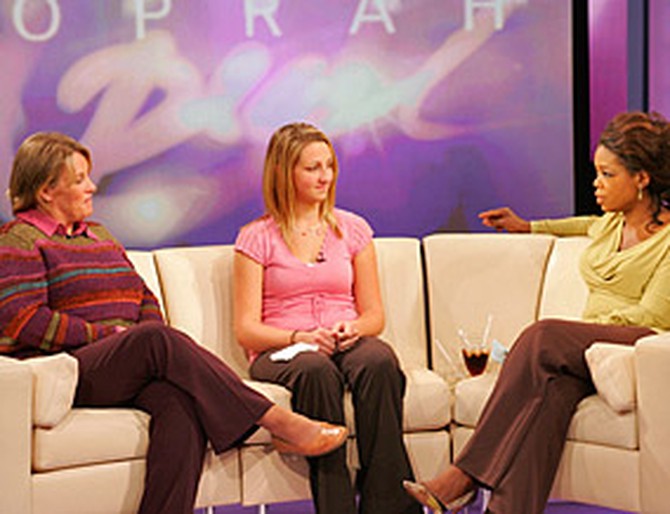
Today, Brianna says her relationship with her mother is wonderful. "She's my best friend," Brianna says. "I love her with all my heart."
Tracy is now the mother of the house again, and Brianna wouldn't have it any other way. "She's now in charge but I love how she does it. I can actually be a child," Brianna says. "I can go and do stuff and know that my brother and sister are going to be taken care of instead of me always having to do it."
Tracy is now the mother of the house again, and Brianna wouldn't have it any other way. "She's now in charge but I love how she does it. I can actually be a child," Brianna says. "I can go and do stuff and know that my brother and sister are going to be taken care of instead of me always having to do it."
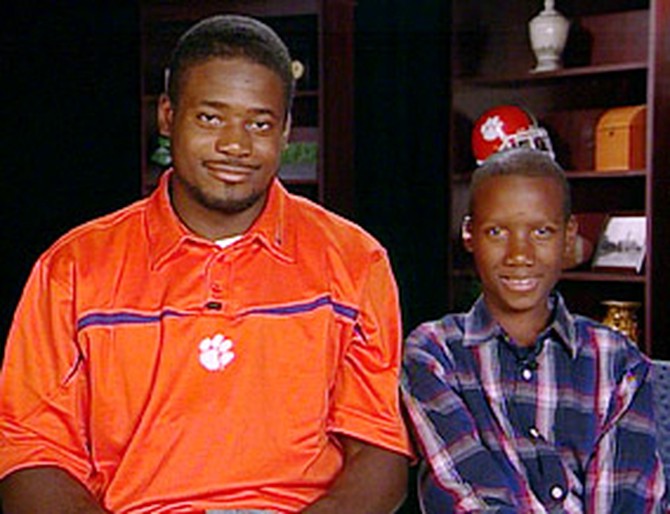
From the sidelines, Clemson University football player Ramon "Ray Ray" McElrathbey seems like any other college athlete. He goes to his classes, practices with his team and lives in an off-campus apartment. So why is Ray Ray making headlines off the field?
In the fall of 2006, Ray Ray returned to campus with his 11-year-old brother Fahmarr in tow. Now, Ray Ray is raising his little brother while his mother continues to struggle with an addiction to crack cocaine...an addiction that began when Ray Ray was a child.
Ray Ray says he was just 6 years old when he saw his mother smoke crack for the first time. As the addiction took hold, his mother was no longer able to care for her children. Ray Ray and his siblings were split up and placed in foster homes.
A few years later, Ray Ray's life took an unexpected turn. Two Little League coaches took him in, and for the next eight years, he found a safe haven in their homes. As a high school student, he excelled at sports and received a full athletic scholarship to Clemson University.
Life seemed to be looking up, but after his freshman year, trouble with his family brought him to Atlanta. There he found his drug-addicted mother living in a rundown motel with three of his siblings, including Fahmarr.
In the fall of 2006, Ray Ray returned to campus with his 11-year-old brother Fahmarr in tow. Now, Ray Ray is raising his little brother while his mother continues to struggle with an addiction to crack cocaine...an addiction that began when Ray Ray was a child.
Ray Ray says he was just 6 years old when he saw his mother smoke crack for the first time. As the addiction took hold, his mother was no longer able to care for her children. Ray Ray and his siblings were split up and placed in foster homes.
A few years later, Ray Ray's life took an unexpected turn. Two Little League coaches took him in, and for the next eight years, he found a safe haven in their homes. As a high school student, he excelled at sports and received a full athletic scholarship to Clemson University.
Life seemed to be looking up, but after his freshman year, trouble with his family brought him to Atlanta. There he found his drug-addicted mother living in a rundown motel with three of his siblings, including Fahmarr.

Ray Ray petitioned the court and gained temporary custody of Fahmarr. Now, instead of sleeping in like some college students, Ray Ray starts his day at 6:30 a.m. Every morning he gets Fahmarr dressed and off to school before heading to class. In the afternoon, Fahmarr does homework while Ray Ray goes to football practice.
"The hard part of being a parent, I guess, is being a parent," Ray Ray says. "You're not the priority anymore."
Ray Ray's hard work hasn't gone unnoticed. "Now I really, really get the feeling of how it feels to have a dad that really cares and a dad that will always be around," Fahmarr says.
At first, Ray Ray says he washed cars, mowed lawns and used his scholarship money to support himself and his brother. The National Collegiate Athletic Association (NCAA) has a rule that prohibits athletes from receiving "gifts, cash or other benefits not provided to the general student population," so the two brothers were on their own.
In September 2006, Clemson University officials petitioned the NCAA on Ray Ray's behalf and the organization agreed to waive the rule. Since then, the university has set up the Fahmarr McElrathbey Trust Fund at a local bank. The fund is set up to help with Fahmarr's expenses, so Ray Ray can focus on school. "I was so surprised [by the outpouring]," Ray Ray says. "I have to write thank you letters!"
"The hard part of being a parent, I guess, is being a parent," Ray Ray says. "You're not the priority anymore."
Ray Ray's hard work hasn't gone unnoticed. "Now I really, really get the feeling of how it feels to have a dad that really cares and a dad that will always be around," Fahmarr says.
At first, Ray Ray says he washed cars, mowed lawns and used his scholarship money to support himself and his brother. The National Collegiate Athletic Association (NCAA) has a rule that prohibits athletes from receiving "gifts, cash or other benefits not provided to the general student population," so the two brothers were on their own.
In September 2006, Clemson University officials petitioned the NCAA on Ray Ray's behalf and the organization agreed to waive the rule. Since then, the university has set up the Fahmarr McElrathbey Trust Fund at a local bank. The fund is set up to help with Fahmarr's expenses, so Ray Ray can focus on school. "I was so surprised [by the outpouring]," Ray Ray says. "I have to write thank you letters!"
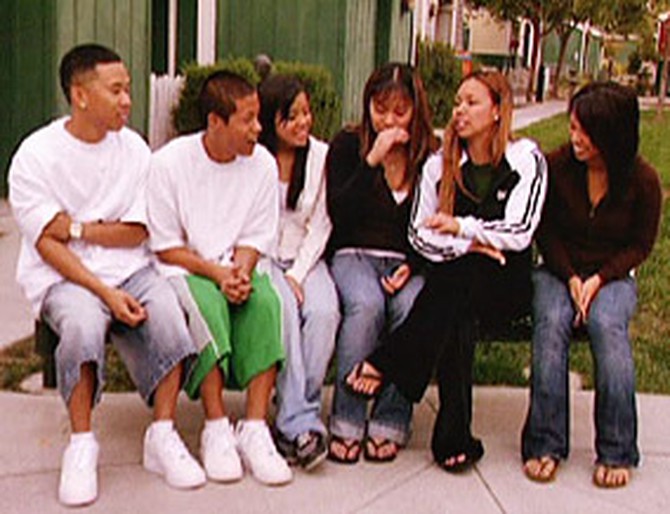
When Trang's parents immigrated to the United States from Vietnam, they dreamed of a better life for their six children. Hue Nguyen and Loi Ngo worked seven days a week at a jewelry store in Sacramento, California, so that their children could focus on their schoolwork, says Trang, their eldest child.
Eventually, Trang graduated from high school and enrolled at the University of California, Berkeley. She was the first in her family to attend college.
Then, on July 25, 2003, Trang's life took a tragic turn. Both her parents were shot and killed at the jewelry store where they worked. Suddenly, Trang and her five brothers and sisters were orphans with nowhere to turn.
As the oldest child, tradition required Trang, who was just 20 years old, to step up and lead the family. "My relatives told me I couldn't cry," she says. "They said, 'You're the oldest. You have to be the strong one now.'"
After her parents' funeral, Trang's relatives made plans to split up the siblings, but Trang says she refused. "I said, 'We can't be separated now. We just lost both of our parents. How could you even think to separate us right now?'" she remembers. "They kept on telling me, 'You can't do anything. You're too young.'"
Eventually, Trang graduated from high school and enrolled at the University of California, Berkeley. She was the first in her family to attend college.
Then, on July 25, 2003, Trang's life took a tragic turn. Both her parents were shot and killed at the jewelry store where they worked. Suddenly, Trang and her five brothers and sisters were orphans with nowhere to turn.
As the oldest child, tradition required Trang, who was just 20 years old, to step up and lead the family. "My relatives told me I couldn't cry," she says. "They said, 'You're the oldest. You have to be the strong one now.'"
After her parents' funeral, Trang's relatives made plans to split up the siblings, but Trang says she refused. "I said, 'We can't be separated now. We just lost both of our parents. How could you even think to separate us right now?'" she remembers. "They kept on telling me, 'You can't do anything. You're too young.'"

After making the decision to keep the family together, Trang moved her five siblings from Sacramento to the Berkeley area, where she was enrolled in college. Her parents didn't leave behind a will or life insurance money, so Trang worked two jobs to support her family. All the while, she continued taking a full load of classes at Berkeley.
When she wasn't at work or in class, Trang says she made sure she was very present in her siblings' lives. She even found a way to drive them to school every morning.
At first, Trang says her brothers and sisters had a hard time accepting her as the head of the household, but these days her success speaks for itself. Four of her five siblings are now in college, and Trang will graduate soon and pursue a career in banking.
Trang and her siblings are living their parents' dream, but three years later, their parents' case remains unsolved.
When she wasn't at work or in class, Trang says she made sure she was very present in her siblings' lives. She even found a way to drive them to school every morning.
At first, Trang says her brothers and sisters had a hard time accepting her as the head of the household, but these days her success speaks for itself. Four of her five siblings are now in college, and Trang will graduate soon and pursue a career in banking.
Trang and her siblings are living their parents' dream, but three years later, their parents' case remains unsolved.
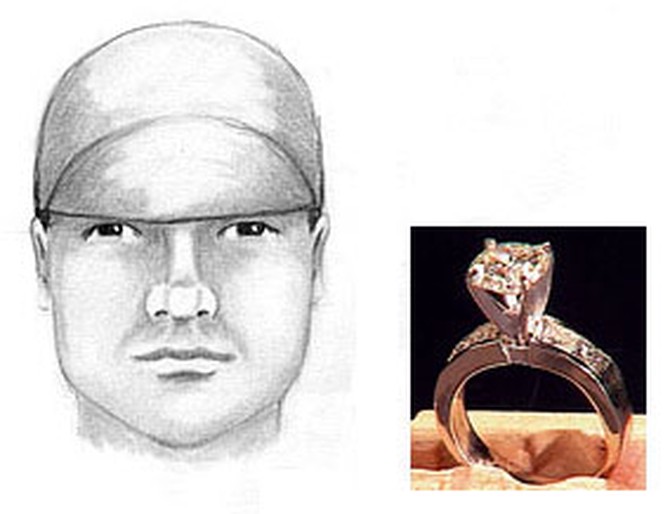
Surveillance video from the jewelry store where Trang's mother and father were murdered shows a man posing as a customer. The man entered Sacramento's Kim Van Jewelry Store at 11 a.m. on July 25, 2003, and browsed the display cases before going into the back workroom with Hue Nguyen and Loi Ngo.
A short time later, the video shows the man coming out of the workroom with a gun in his hand. Trang's parents were later found dead with gunshot wounds to their heads. Police believe that the man in question left behind a very small size 3, 1 1/4 carat diamond ring (pictured above).
The suspect is described as an Asian male, possibly Vietnamese. He is approximately 17–25 years old, has a slender build and is probably left handed. At the time of the murder, he was wearing an off-white baseball cap, short-sleeved blue or gray T-shirt, tan pants and white tennis shoes.
A witness saw him drive away in a 1990s beige-to-light gold Ford Thunderbird with a black front fender. There is currently a $50,000 reward for information which leads to the arrest and conviction of this suspect. If you recognize the man or the ring, call 916-874-8493 with information—callers may remain anonymous.
A short time later, the video shows the man coming out of the workroom with a gun in his hand. Trang's parents were later found dead with gunshot wounds to their heads. Police believe that the man in question left behind a very small size 3, 1 1/4 carat diamond ring (pictured above).
The suspect is described as an Asian male, possibly Vietnamese. He is approximately 17–25 years old, has a slender build and is probably left handed. At the time of the murder, he was wearing an off-white baseball cap, short-sleeved blue or gray T-shirt, tan pants and white tennis shoes.
A witness saw him drive away in a 1990s beige-to-light gold Ford Thunderbird with a black front fender. There is currently a $50,000 reward for information which leads to the arrest and conviction of this suspect. If you recognize the man or the ring, call 916-874-8493 with information—callers may remain anonymous.
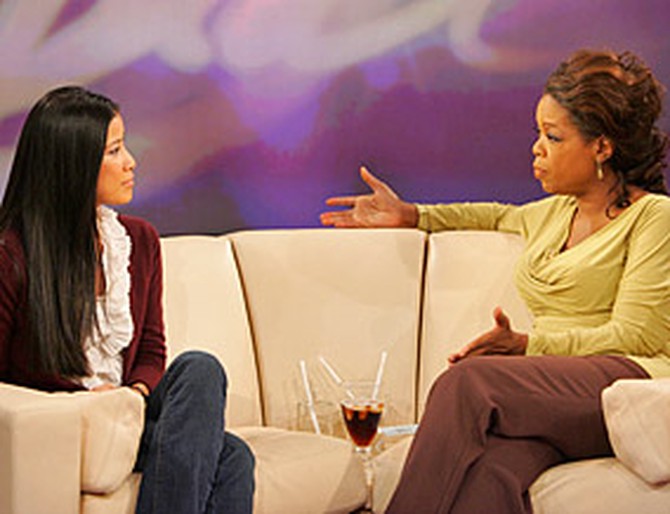
So what can we do to help children who are dealing with adult responsibilities at home? "I think that it's really important for school administrators and friends of kids to look out for signs," Lisa says.
Lisa says there are a few telltale signs. "If the kids are tired. If they're exhausted. If they're having the inability to focus," she says.
It's especially important for other adults to ask questions, Lisa says. "They try and hide their problems because they're so afraid that they'll be taken away by child protective services," Lisa says. "And what's worse than even being taken away from their parents is they'll be separated from their siblings. And that's a huge fear because no matter how bad the situation is at home, they'd rather keep their family intact."
Lisa says there are a few telltale signs. "If the kids are tired. If they're exhausted. If they're having the inability to focus," she says.
It's especially important for other adults to ask questions, Lisa says. "They try and hide their problems because they're so afraid that they'll be taken away by child protective services," Lisa says. "And what's worse than even being taken away from their parents is they'll be separated from their siblings. And that's a huge fear because no matter how bad the situation is at home, they'd rather keep their family intact."
Published 10/20/2006

